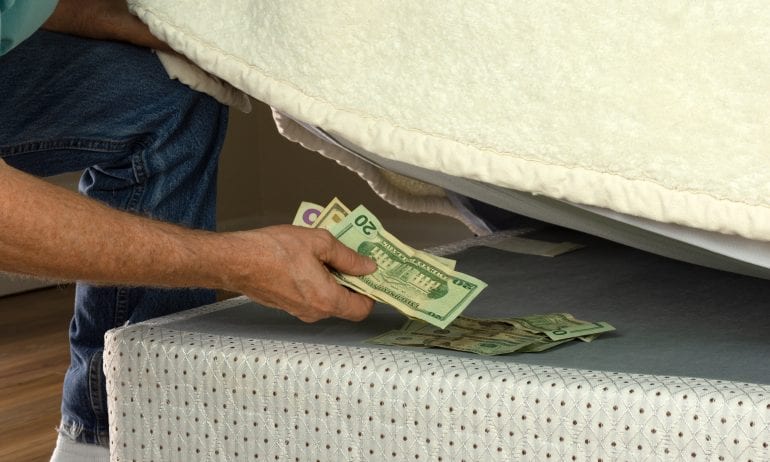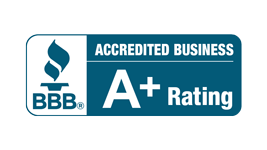Can I Keep My Savings in Chapter 7?
The short answer is yes, but only up to a point. It is natural to want to keep your savings in Chapter 7, after all, you consider bankruptcy because there is not enough cash available. After filing Chapter 7 you want to keep as much cash available for emergencies and other personal needs. Use exemption planning to maximize your cash on hand and wildcard exemptions to keep as much savings as possible in chapter 7.
Here’s how.
How much cash you can keep in Chapter 7 depends on exemption laws. Exemption laws vary from state to state. Although bankruptcy law is federal, and 11 USC 541 defines property of the estate to include most of what we own, with certain exceptions like qualified retirement plans, the protection of exemption laws is mostly governed by state law. See 11 usc 522.
So, depending on what state you live in, or have lived in for the 730 days before you file, you will need to review your state exemption laws. This will determine how much cash is exempt in chapter 7, and how much of your savings you can keep in chapter 7.
Savings in chapter 7 is considered to be cash on hand. There is no special category or protection for your savings account. However, there is a “wildcard” exemption you can use to protect any property, regardless of what it is. And this includes keeping your savings in chapter 7. To maximize your savings in chapter 7, use exemption planning carefully to keep as much of your wildcard unused for anything other that your savings.
Unfortunately, not all states have the wildcard exemption protection. Those state which have the wildcard assign different values to it. Only a handful of states permit you to use the federal exemptions, which are better than most state exemption statutes.
For example, the the federal wildcard exemption is around $13,100 if you don’t have any equity in your home, or $1,250 plus up to $11,850 of any unused amount of the homestead exemption (which adds up to $13,100).
Not bad.
But in Ohio, for example, the exemption statute, ORC 2329.66 has only $500 for cash on hand, and $1,325 for the wildcard. Much less generous than the Federal exemptions.
Hiding Cash in Chapter 7
Since the exemptions for most who file chapter are limited, and prevent you from being able to keep much money in savings in chapter 7, some are tempted to hide cash in chapter 7 cases. While the motivation is understandable, this is a huge mistake.
Your bankruptcy case is a Federal Court proceeding. Your petition is signed under penalty of perjury. You are required to disclose all property you own or have any interest in. Obviously, this includes your cash, whether in the bank, or in a safe at home, or in any other location, for that matter.
In your bankruptcy petition, there are a number of questions you must truthfully answer. This includes disclosure of all cash you possess, or have given to anyone. So, it’s not possible to legally circumvent the limitations on cash in chapter 7 by hiding the cash. You can’t give it to someone to “hold” so that you don’t technically “possess” it.

What Happens if You Get Caught Hiding Cash?
Like many things in the law, the answer is, “it depends.” It depends on the circumstances, and the conduct of the debtor when the cash is discovered by the trustee.
If it appears that the cash was not being deliberately hidden, but merely overlooked, like a savings account which was dormant and simply
“forgotten” without a large sum of money in it. Then amending your bankruptcy to disclose the cash may be all that’s needed. You might lose the cash, but you probably would not lose your discharge, and probably no criminal investigation would result.
This has happened to a number of my clients over the years. Trustees have a lot of experience in these matters. They have a keen sense of whether someone has made an honest mistake, or if they seem to be trying to hide cash in chapter 7.
If the debtor has honestly made a mistake, and “comes clean and cooperates” the problem may be solved with disclosure. In some cases, the trustee may disallow the exemption. Then, even if all or some of the cash “hidden” in the chapter 7 would have been protected, it could be lost if not disclosed as it should have been.
But, the consequences of hiding cash in chapter 7 could be much worse.
The Penalties if You Get Caught Hiding Cash
The trustee might sue you to keep you from getting a discharge. And, the trustee can do this even after your case is over! So even if you got a discharge, if the trustee later discovers that you were hiding cash in your chapter 7, your discharge could be revoked.
When this happens, you would still lose the cash hidden in your chapter 7. Then, after your property is distributed to your creditors, you’ll still owe the balance of all your debts. Worse, they will never be dischargeable in a later bankruptcy. You’ll owe them forever, until paid.
Finally the worst-case scenario. Criminal prosecution. In your bankruptcy petition there are multiple warnings that you are signing under penalty of perjury. There are possible criminal prosecution for falsification. Fines of up to $250,000 and prison. Not worth the risk.
The ability to discharge debt in bankruptcy and get a fresh start is a tremendous right we have as Americans. Other countries don’t provide this kind of economic and financial relief to their citizens.
Along with the privilege, there is a responsibility to cooperate and honestly disclose all of your assets. Seldom to people try to hide cash in chapter 7. But when they do, the chances are good that there will be serious consequences for them.
Speak with a qualified Chapter 7 Bankruptcy Attorney for more information.




